nasa

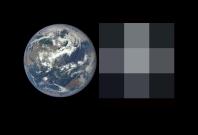 Science
The NASA scientists have recently said that they are continuing with their search for alien life with their knowledge of the Earth.
Science
The NASA scientists have recently said that they are continuing with their search for alien life with their knowledge of the Earth.
 Science
Satellites have been used to view the living organisms and change in ecosystems on Earth. NASA has released stunning images of these life processes with tag "Our Living Planet From Space."
Science
Satellites have been used to view the living organisms and change in ecosystems on Earth. NASA has released stunning images of these life processes with tag "Our Living Planet From Space."
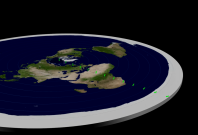 Science
The FEIC is held every year and is attended by people who have stopped believing that the earth is round.
Science
The FEIC is held every year and is attended by people who have stopped believing that the earth is round.
 Society
This visualization uses data from NASA satellites, combined with mathematical models in a computer simulation allow scientists to study the physical processes in our atmosphere. By following the sea salt that is evaporated from the ocean, you can see the storms of the 2017 hurricane season.
Society
This visualization uses data from NASA satellites, combined with mathematical models in a computer simulation allow scientists to study the physical processes in our atmosphere. By following the sea salt that is evaporated from the ocean, you can see the storms of the 2017 hurricane season.
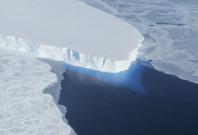 Environment
Developed by NASA's Jet Propulsion Laboratory in California, the tool gives a vivid picture of how the earth may look like after global warming increases further.
Environment
Developed by NASA's Jet Propulsion Laboratory in California, the tool gives a vivid picture of how the earth may look like after global warming increases further.
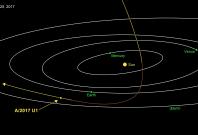 Science
The International Astronomical Union has classified the first interstellar object as an asteroid and has named it as "Oumuamua" or "a messenger from afar arriving first." They predicted that there are more interstellar objects which could pass by our solar system which could cause disaster to the solar system, including the earth.
Science
The International Astronomical Union has classified the first interstellar object as an asteroid and has named it as "Oumuamua" or "a messenger from afar arriving first." They predicted that there are more interstellar objects which could pass by our solar system which could cause disaster to the solar system, including the earth.
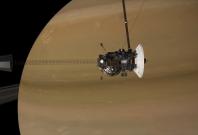 Space
According to Nasa, the space nuclear reactor tech could literally empower future Mars habitats, transforming Mars resources into water, oxygen and fuel – all the necessary requirements for humans to live on Mars long-term.The Kilopower could produce continuous electricity for 10 or more years in the harsh and extreme environments of the Red Planet. The technology is not dependent on solar power, which means that it could meet power demands even at night or during prolonged sunlight-reducing dust storms.
Space
According to Nasa, the space nuclear reactor tech could literally empower future Mars habitats, transforming Mars resources into water, oxygen and fuel – all the necessary requirements for humans to live on Mars long-term.The Kilopower could produce continuous electricity for 10 or more years in the harsh and extreme environments of the Red Planet. The technology is not dependent on solar power, which means that it could meet power demands even at night or during prolonged sunlight-reducing dust storms.
Science
NASA is developing a new technology for generating sun-independent, sustainable electricity for its future Mars missions. Uranium-235 isotope would be used for the technology.
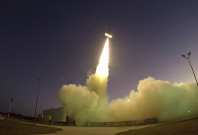 Science
NASA has successfully tested a supersonic parachute which is meant to be used in its Mars 2020 mission. The parachute was launched on a Black Brant IX sounding rocket from its facility in Wallops Island, Virginia on October 4, 2017. It is undergoing further development and would be used in future Mars missions.
Science
NASA has successfully tested a supersonic parachute which is meant to be used in its Mars 2020 mission. The parachute was launched on a Black Brant IX sounding rocket from its facility in Wallops Island, Virginia on October 4, 2017. It is undergoing further development and would be used in future Mars missions.
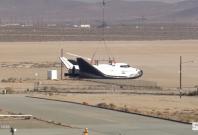 Companies
Sierra Nevada Corporations (SNC) Dream Chaser® spacecraft had a successful free-flight test on 11 November, 2017 at Edwards Air Force Base, with support of Nasas Armstrong Flight Research Center.
Companies
Sierra Nevada Corporations (SNC) Dream Chaser® spacecraft had a successful free-flight test on 11 November, 2017 at Edwards Air Force Base, with support of Nasas Armstrong Flight Research Center.
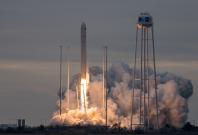 Science
The cargo spacecraft was launched at 7:19 am EST (Eastern Standard Time) on an Antares rocket from the NASA launch Pad.
Science
The cargo spacecraft was launched at 7:19 am EST (Eastern Standard Time) on an Antares rocket from the NASA launch Pad.
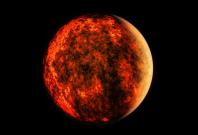 Society
Conspiracy theorists claim that the recent media coverup and strong earthquakes in Iran and Iraq are crucial signs of Nibiru's close approach
Society
Conspiracy theorists claim that the recent media coverup and strong earthquakes in Iran and Iraq are crucial signs of Nibiru's close approach
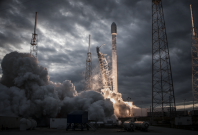 Science
SpaceX rocket engine exploded during its qualification test in its facility in Texas. The company had been developing and testing the different engines for its first spacecraft which was planned to be launched in 2018. The aerospace company also has a dream mission for manned Martian mission by 2024.
Science
SpaceX rocket engine exploded during its qualification test in its facility in Texas. The company had been developing and testing the different engines for its first spacecraft which was planned to be launched in 2018. The aerospace company also has a dream mission for manned Martian mission by 2024.
 Science
NASA has confirmed that there is a Supervolcano beneath the icy surface in Antarctica waiting to erupt at any time
Science
NASA has confirmed that there is a Supervolcano beneath the icy surface in Antarctica waiting to erupt at any time
 Science
A recent NASA-funded research has found a method to measure the ozone and ozone-producing gases in the lower atmosphere. The research has importance as cities like Delhi are facing acute air pollution due to smog.
Science
A recent NASA-funded research has found a method to measure the ozone and ozone-producing gases in the lower atmosphere. The research has importance as cities like Delhi are facing acute air pollution due to smog.
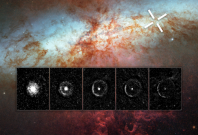 Space
Over a period of two-and-a-half years, NASAs Hubble Space Telescope observed the light echo of supernova SN 2014J in galaxy M82, located 11.4 million light-years away. The echo happens when light from the explosion bounces off a cloud of a giant cloud of gas and dust near the supernova.
Space
Over a period of two-and-a-half years, NASAs Hubble Space Telescope observed the light echo of supernova SN 2014J in galaxy M82, located 11.4 million light-years away. The echo happens when light from the explosion bounces off a cloud of a giant cloud of gas and dust near the supernova.
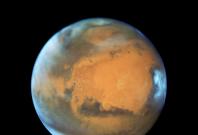 Society
The 720-day NASA mission will be landing near the Mars equator on November 26, 2018.
Society
The 720-day NASA mission will be landing near the Mars equator on November 26, 2018.
 Science
The intra-city vehicles have been given a tentative launch date of 2023 and Uber is joining hands with aviation regulators in the US and Europe to make the dream a reality by the expected date.
Science
The intra-city vehicles have been given a tentative launch date of 2023 and Uber is joining hands with aviation regulators in the US and Europe to make the dream a reality by the expected date.
 Society
As Nibiru is allegedly on its deadly course, and according to conspiracy theorists, it may hit Jupiter
Society
As Nibiru is allegedly on its deadly course, and according to conspiracy theorists, it may hit Jupiter
 Society
Uber is working with NASA to test flying taxis in a little over two years. Uber envisions electric jet-powered vehicles: part helicopter, part drone, and part fixed-wing aircraft.
Society
Uber is working with NASA to test flying taxis in a little over two years. Uber envisions electric jet-powered vehicles: part helicopter, part drone, and part fixed-wing aircraft.
 Society
Society
 Science
Science
 Space
Space
 Science
Science
 Science
Science
 Space
Space










